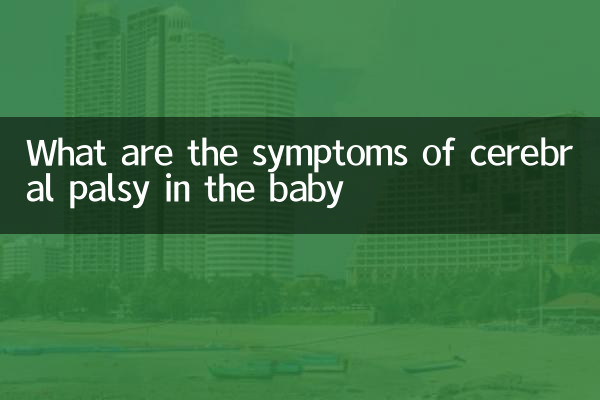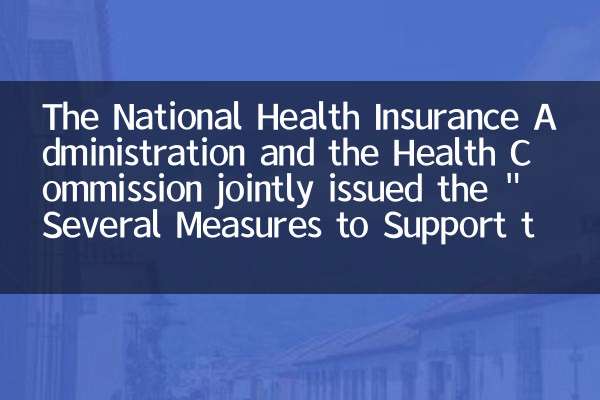What are the symptoms of cerebral palsy in the baby
Cerebral Palsy is a disorder of movement and posture disorders caused by abnormal development of the fetus or infant brain. In recent years, early diagnosis and intervention of cerebral palsy have become a hot topic, and many parents pay attention to the possible early symptoms of cerebral palsy in their babies. This article will combine the hot contents of the entire network for the past 10 days to analyze the common manifestations of cerebral palsy in detail for you and provide structured data for reference.
1. Common manifestations of cerebral palsy in babies

The manifestations of cerebral palsy vary by type and severity, but here are some common early symptoms:
| Performance Type | Specific symptoms | Time of occurrence |
|---|---|---|
| Motor development delay | Head-up, turn over, sit and crawl are obviously behind babies of the same age | It starts to appear in 3-6 months |
| Abnormal muscle tone | Muscles are too stiff (spasmodic) or too loose (smodic) | Discover after birth |
| Abnormal posture | Asymmetric body, favor one side, flexion or stretching of limbs | It gradually became obvious after 3 months |
| Reflection exception | The original reflection (such as the gripping reflection) persists or disappears delayed | Still exists after 6 months |
| Difficulty in eating | Weak sucking, difficulty swallowing, frequent choking | It can occur during the neonatal period |
2. Characteristics of different types of cerebral palsy
According to the characteristics of dysmotic disorders, cerebral palsy can be divided into several main types, each with different manifestations:
| Cerebral palsy type | Percentage | Main features |
|---|---|---|
| Spasmodic | 70-80% | Stiff muscles, limited movement, scissor gait |
| Dysmotic type | 10-15% | Involuntary movement, difficult posture control |
| Ataxia type | 5-10% | Bad balance, poor coordination |
| Mixed | About 5% | Have the above characteristics |
3. Early warning signals for identifying cerebral palsy
Based on recent pediatric experts’ recommendations, the following signals may suggest further evaluation is needed:
1.Newborn period:Difficulty in feeding, abnormal crying, slow response to stimuli or excessive sensitivity.
2.3 months:You cannot raise your head, keep clenching your fists with both hands, and have no response to sound or face.
3.6 months:You cannot turn over, you will not reach out to grab objects, and your posture is asymmetrical.
4.9 months:You can't sit alone, you can't crawl, or you can't babble.
5.12 months:You cannot stand up, can't use your fingers, and you can't pronounce it unconsciously.
4. Answers to recent hot questions
1.Will cerebral palsy necessarily lead to intellectual disability?Not necessarily, about 50% of children with cerebral palsy have normal intelligence, and early intervention can improve prognosis.
2.Can cerebral palsy be cured?Currently, there is no complete cure, but rehabilitation training can significantly improve function.
3.What are the causes of cerebral palsy?Including premature birth, low birth weight, hypoxia and ischemia, infection, jaundice, etc.
4.How to prevent cerebral palsy?Do prenatal examinations to avoid premature birth, and treat neonatal jaundice in a timely manner.
5. What should parents do
1. Take your children to undergo health check-ups regularly and pay attention to developmental milestones.
2. Seek medical treatment in time if abnormalities are found, and do not miss the golden intervention period (0-3 years old).
3. Learn the correct rehabilitation training method, combining family training with professional treatment.
4. Maintain a positive attitude and seek social support and professional guidance.
Conclusion
Early recognition of the manifestations of cerebral palsy is crucial to improve the prognosis of children. Parents should understand the normal development rules of infants and seek medical treatment in time if they find abnormalities. Recent studies have shown that, under professional guidance, most children with cerebral palsy can gain good living ability. If you have any concerns about your baby's development, it is recommended to consult a pediatrician or a child rehabilitation specialist as soon as possible.

check the details

check the details